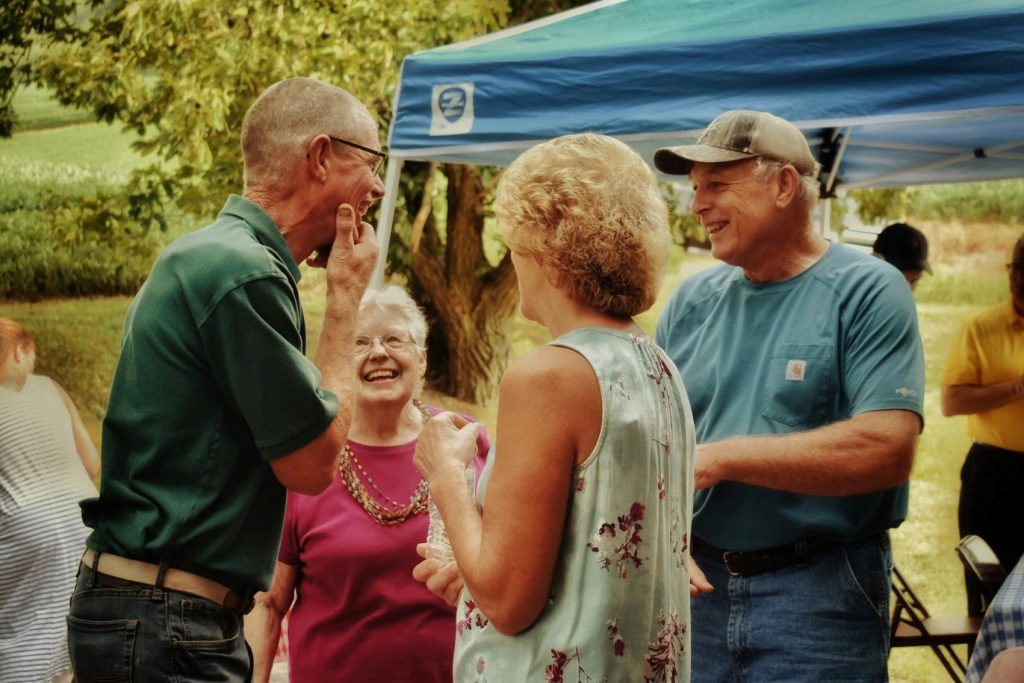Growing old for some of us can often feel like a transition into a more solitary phase of life, but it doesn’t have to be! In fact, nurturing a robust support network is crucial for the well-being and happiness of seniors. This network is the potent force that lends strength, resilience, and joy to the golden years. For caregivers, retirement communities, and our elders themselves, understanding the significance of community and fostering social connections is an investment in the future.
The Positive Impact of Community on Seniors
Emotional Well-being
For seniors, being part of a community offers a deep-seated sense of security. It gives them the knowledge that they are not alone; that there is a group of people who care and will lend an ear or a helping hand when needed. Studies have shown that strong emotional support can lead to an increased sense of happiness and contentment, which are vital for maintaining a positive outlook on life.
Mental Health Benefits
Engaging with a community can have a profound impact on cognitive function. Conversations, group activities, and even light-hearted discussions can keep the brain active and sharp. Seniors living within supportive communities are also less likely to suffer from depression, anxiety, and other mental health disorders. The feeling of being part of something larger and more meaningful acts as a buffer against the mental challenges that often come with old age.
Reducing Isolation and Loneliness
One of the most pressing issues for seniors is feeling socially isolated. Loneliness can be as detrimental to health as smoking! However, when seniors engage with their community and form social bonds, this sense of isolation decreases. A healthy community is one where seniors can share experiences, support each other, and create lasting, meaningful relationships.
Improved Quality of Life
The presence of a strong support network is directly proportional to the quality of life for seniors. It ensures they can enjoy their hobbies, attend events, and manage day-to-day tasks with ease. A robust network also means peace of mind for seniors, knowing that help is readily available, allowing them to live life to the fullest.
Physical Health Benefits
Socially active seniors are generally healthier. They have better immune systems, are more likely to stay physically active, and tend to maintain and cultivate healthier habits. The constant social stimulation contributes to better overall health and a stronger ability to fight off illnesses. Specific health benefits linked to having a strong social network include:
- Decreased risk of certain cancers
- Improved sleep
- Increased cardiovascular health
- Lower blood pressure
- Reduced hypertension
- Reduced inflammation
Enhanced Sense of Belonging and Purpose
Feeling needed and connected to others creates a sense of purpose among seniors. They can contribute their knowledge and skills, and this reciprocity further solidifies bonds within the community. Whether through mentorship, volunteering, or simply being a supportive friend, seniors can find meaning that enriches their lives in profound ways.
Social Connections for Seniors
Importance of Regular Social Interactions
Social connections are essential for seniors to maintain a fulfilling and meaningful existence. Simple interactions like shared meals, game nights, or daily conversations can bring joy and laughter. It’s through these connections that seniors find shared experiences and common ground, fostering a sense of togetherness and camaraderie.
Activities Promoting Engagement
A variety of social and recreational activities tailored for seniors can promote social engagement with their peers. Book clubs, gardening groups, art classes, and local outings are not only enjoyable but also encourage seniors to stay active and connected. These activities provide opportunities for learning, self-expression, and, most importantly, a platform for seniors to interact and form bonds.
Technology for Staying Connected
In a world that is increasingly reliant on digital communication, technology can offer a lifeline for seniors who may have mobility issues or live in remote areas. Video calls, social media, and various communication apps can bridge the gap, connecting seniors with friends, family, and the wider world. Technology should be seen as a tool to enhance, not replace, face-to-face interactions.
Tips for Building Support Networks
Involvement of Caregivers and Family
The family is often the first line of support for seniors. Encouraging regular visits, including family members in the senior’s daily life, and fostering an open environment for communication are critical. Caregivers can also play a pivotal role by organizing events, facilitating social activities, and ensuring the seniors have the means to stay connected.
Role of Retirement Communities
Retirement communities are designed to facilitate social activity and community engagement. From communal meals to organized outings, these settings promote a lifestyle that is conducive to forming relationships and establishing a support network. The proximity of peers and the presence of staff also ensure that help is always at hand when needed.
Many retirement communities are simply “regular” neighborhoods that have a 55+ requirement; a senior living community doesn’t always mean you’re giving up independence and living in a hospital-like setting.
Community Programs and Initiatives
Local community programs are invaluable for seniors who live independently. They act as a catalyst for seniors to connect with others who share their interests and values, building a sturdy foundation for support.
Ways to get involved:
- Volunteer at libraries, pet shelters, or soup kitchens
- Join the local recreation center, whether for Silver Sneakers programs or other group fitness programs
- Get a part-time job doing something you love
- Enroll in community education classes
Key Takeaways
The support network that we build for our seniors is a testament to our collective humanity. It is the invisible thread that binds us, one to another, and fills our lives with warmth and light. The community, both physical and virtual, that we create is the bedrock of a fulfilling old age. As we continue to advance in the service we provide to our seniors, it’s crucial to focus on the power of community and the benefit of social connection – the legacy of care we ensure for generations to come.


